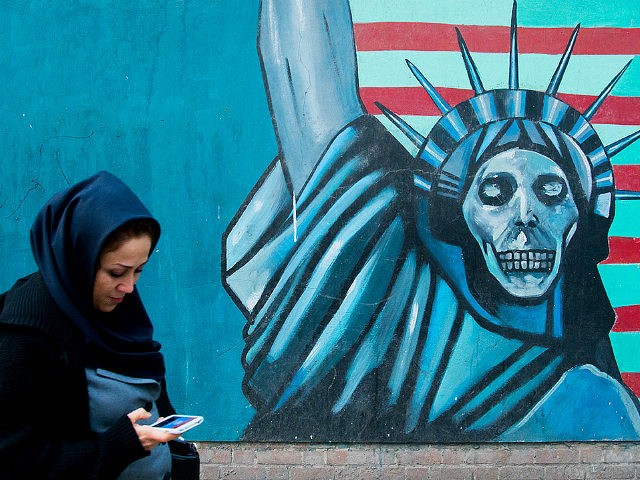Iranian Foreign Ministry spokesman Saeed Khatibzadeh said on Monday that the U.S. election carries a “great message” for the region – that message being to recognize the power of Iran and avoid doing business with the United States.
Iran’s PressTV quoted Khatibzadeh and his superior, Iranian Foreign Minister Mohammad Javad Zarif, hoping the results of the American election would prove devastating to Iran’s regional rivals in Saudi Arabia:
[Khatibzadeh] cited Foreign Minister Mohammad Javad Zarif as warning regional countries against “taking the gamble to buy security from psychopaths, who only think of money and arms.” Khatibzadeh then reminded how Zarif had also warned that taking such a risk was like “placing one’s eggs in an unsafe basket.”
In 2017, Trump signed a whopping $110-billion arms deal with Saudi Arabia during his maiden foreign visit. Two years later, the US State Department approved weapons sales to Bahrain and the United Arab Emirates, Riyadh’s dedicated regional allies, worth almost $6 billion.
Observers say Trump’s loss in the polls has likely given rise to some questions about the future of these agreements and the quality of the regional countries’ US ties under his successor Joe Biden.
“Some neighboring countries are still thinking about buying security and loyalty and are focusing on lobbying operations in other countries,” Khatibzadeh grumbled, singling out Israel, which he described as “very much warlike” but primarily interested in waging wars “at the expense of American troops’ blood.”
“All of Israel’s existence and reputation consists of creating crisis,” he charged.
According to PressTV, Iran spent the past four years constructively advising regional powers to “seek out security solutions within the region itself,” while President Donald Trump indulged the “hostility” of the Saudis and condoned their “atrocities” as he unfairly maintained “huge pressure” on Tehran.
The Trump administration pushed ahead with several large arms sales to Saudi Arabia over the past few years, citing the growing regional threat of Iran. Those sales encountered domestic political opposition from critics of Saudi Arabia’s intervention in the Yemeni civil war. Iran has been caught supplying weapons to the Houthi insurgency in Yemen in violation of international law, including shipments of advanced anti-aircraft missiles.
Foreign Minister Zarif hailed the reported victory of challenger Joe Biden in several Twitter posts, hitting the same themes Khatibzadeh outlined:
“Trump is gone, and we and our neighbors will stay,” Zarif said in another tweet written in Arabic. “Relying on foreigners does not bring security; it rather destroys hope. We extend our hands to our neighbors for cooperation to realize the common interests of our peoples and countries.”
Iranian Supreme Leader Ayatollah Ali Khamenei called the American election a “spectacle” and “example of the ugly face of liberal democracy in the U.S.” He claimed it illustrated the “definite political, civil, and moral decline of the U.S. regime.”
Iran’s secular chief executive, President Hassan Rouhani, told state media on Sunday that victory for Joe Biden would offer “an opportunity for the next U.S. government to make up for past mistakes and return to the path of adhering to international commitments with respect to global rules.”
Rouhani cited the election as proof that America’s “maximum pressure” campaign of “imposed economic war” against Iran has failed.
Amos Hochstein, a former senior aide to Joe Biden, said on Sunday he expected returning to the Iran nuclear deal will be “high on his agenda.”
“I believe that in the first months, we’ll either see him rejoin the deal fully, or what I would call ‘JCPOA-minus,’ meaning lifting sanctions in exchange for suspending some of the Iranian nuclear programs in the past three years,” Hochstein predicted, as quoted by the Times of Israel.

COMMENTS
Please let us know if you're having issues with commenting.